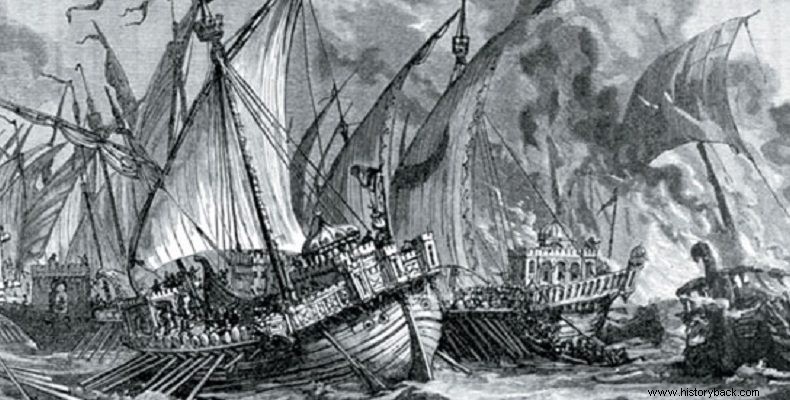
The naval battle of the Corinthian was one of the many conflicts between Byzantium and the Arabs in the 9th century AD. It was given in 873 AD. and is one of the most memorable victories of the great, although largely unknown, Byzantine admiral Nikitas Oorifas.
According to the chroniclers Theophanis and Ioannis Skylitzis, the Arab emirate of Crete had become a particularly dangerous rival of Byzantium during the reign of the first Macedonian king Basil I.
The emir Saet ordered the exomote Fotius to attack the Byzantine lands at the head of a strong squadron of at least 50 men of war. Photius, who is described as particularly bold and intelligent, did not hesitate to enter even the sea of Propontis wanting to humiliate the Empire.
However, on his way out of the straits, he was attacked by the Byzantine fleet under the Drungarian Nikitas Oorifas and conquered him. The Arab fleet lost at least 20 ships and returned humiliated to Crete. A few months later, however, Photios returned full of blood, wanting to take revenge.
The Arab fleet, of unknown composition, sailed to the Peloponnese in 873 AD. and began to savagely plunder the coasts sowing terror, panic and death. Oorifas was informed of the presence of the Arabs and hurried to meet him.
We do not know the number or type of vessels he possessed. However, sailing with a strong wind, the Byzantine admiral reached Kechries, the eastern port of Corinth. There he was informed that the Arabs had sailed south and had plundered Methoni, Pylos and Patras and that they had entered Corinth.
If Oryphas followed the tracks of his opponents, sailing around the Peloponnese, it was a given that he would not catch up with them. He had to think of something else. And he found it. Instead of sailing around the Peloponnese to find himself in Corinthia, he dragged his ships to the Isthmus of Corinth and found himself in Corinthia.
This is what the ancient Greeks did, after all, through the famous diolkou. It is not known if the diolkos was preserved at that time and which exact method was used by Nikitas Oorifas. In any case the result counts and the result was the absolute tactical surprise of the Arabs.
The Byzantines fell upon the unsuspecting Arabs and crushed them, sinking many enemy ships and killing or capturing thousands, including the traitor Photius. A worse fate awaited the Christians who voluntarily fought alongside the Arabs and were captured. They were all executed with horrible tortures to make an example.
However, some modern historians question the manner and time of this particular naval battle. So others date it to 879 AD. while others reject the possibility that Oryphas dragged his ships from the isthmus.
